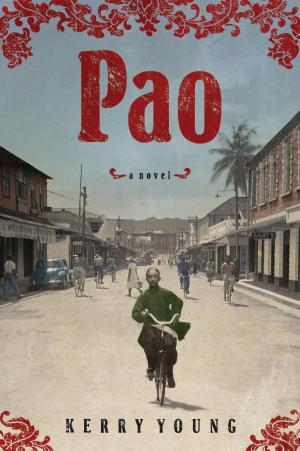| Author: | Kimbell Vincent | ISBN: | 9781465756923 |
| Publisher: | Kimbell Vincent | Publication: | January 15, 2012 |
| Imprint: | Smashwords Edition | Language: | English |
| Author: | Kimbell Vincent |
| ISBN: | 9781465756923 |
| Publisher: | Kimbell Vincent |
| Publication: | January 15, 2012 |
| Imprint: | Smashwords Edition |
| Language: | English |
The Dwellers in the Field, translated as the Polians, epitomize the agony and exultation of the last millennium. With the Great War, 3 million Poles fled to the United States, 9 million succumbed to Russian domination and 5.5 million came under the boot of the Austro-German empire. Those who stayed fetched their guns, some to fight the Germans, some to fight the Russians, while the hard-core Nationalists fought everybody. In the maelstrom that followed, no one escaped. This is their story. It is an action filled saga of the obscure vision of soldiers crawling through gas in the Pripet Marshes, of those who hid in the forests of Little Russia, the headlong panic of rag-bound feet in winter, and the flutter of farewell notes on the bulwarks of empty trenches. Then, as now, their frantic cries are of Prussian elitism, Marxism and Solidarity too.
There is Demetrius, a Serbian prince who refused to die; Frode Staffle, a too-old German soldier who wanted to, and Fiedl, a ten year old who went to war to oblige him. There is Willfred von Hussen, a fanatic Colonel who, in spite of his zeal for battle, gave more than he gained. And, from the Episcopal See in Poznan, there are two brothers of the cloth: an idealistic, bungling secular priest named Johann, and Karl, an ambitious Jesuit who is torn between being a soldier-for-Christ or a spy for the Vatican. There is Ula, a mindless victim, Anna the innocent and Dotte, the mother who suffered for all. Shouting or weeping, their message remains undeniable.
The Dwellers in the Field, translated as the Polians, epitomize the agony and exultation of the last millennium. With the Great War, 3 million Poles fled to the United States, 9 million succumbed to Russian domination and 5.5 million came under the boot of the Austro-German empire. Those who stayed fetched their guns, some to fight the Germans, some to fight the Russians, while the hard-core Nationalists fought everybody. In the maelstrom that followed, no one escaped. This is their story. It is an action filled saga of the obscure vision of soldiers crawling through gas in the Pripet Marshes, of those who hid in the forests of Little Russia, the headlong panic of rag-bound feet in winter, and the flutter of farewell notes on the bulwarks of empty trenches. Then, as now, their frantic cries are of Prussian elitism, Marxism and Solidarity too.
There is Demetrius, a Serbian prince who refused to die; Frode Staffle, a too-old German soldier who wanted to, and Fiedl, a ten year old who went to war to oblige him. There is Willfred von Hussen, a fanatic Colonel who, in spite of his zeal for battle, gave more than he gained. And, from the Episcopal See in Poznan, there are two brothers of the cloth: an idealistic, bungling secular priest named Johann, and Karl, an ambitious Jesuit who is torn between being a soldier-for-Christ or a spy for the Vatican. There is Ula, a mindless victim, Anna the innocent and Dotte, the mother who suffered for all. Shouting or weeping, their message remains undeniable.















